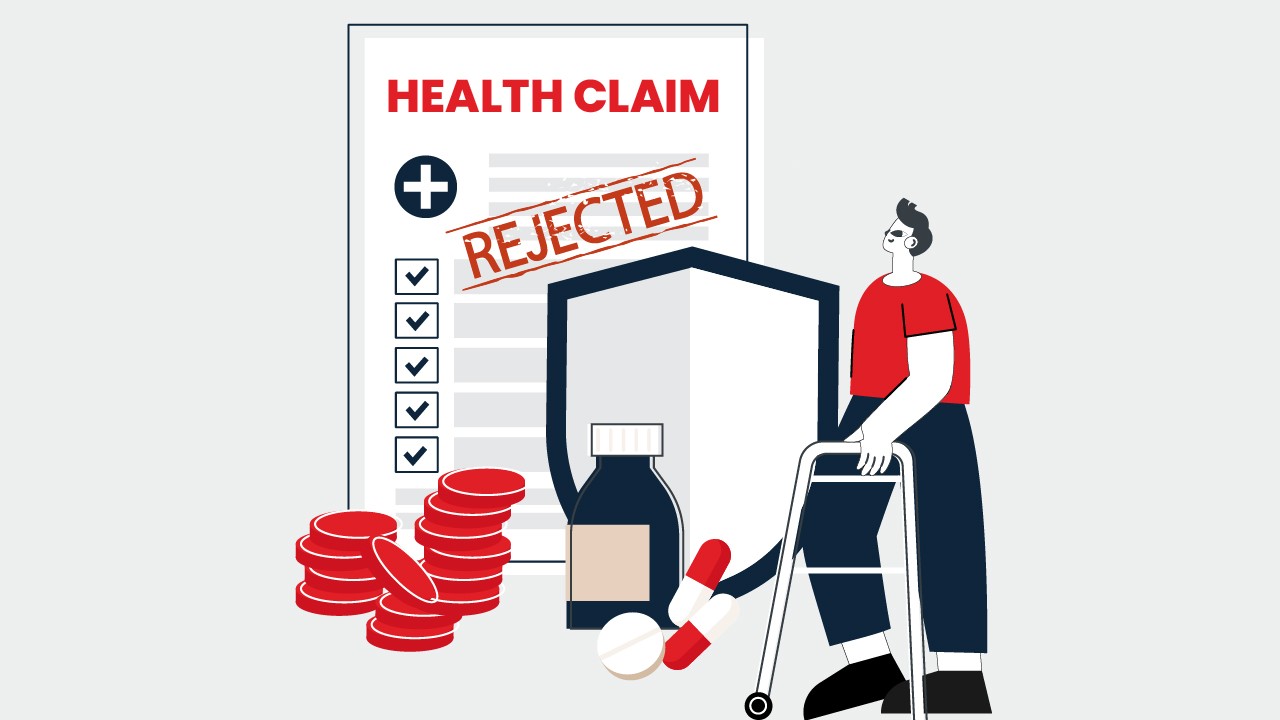Understanding the circumstances leading to health insurance claim rejections is vital. Explore key scenarios and proactive measures for safeguarding your coverage.
- Incomplete Or Missing Documents
Cashless claims at network hospitals minimise the risk of missing medical records, while reimbursement claims at non-network hospitals may still proceed with some missing documents. The insurer issues warnings about missing documents on the 15th, 30th, 45th, and 60th days, and failure to provide them after the final warning may result in claim denial.
- Delayed Submission Of Documents
In case of unintentional delays in submitting documents for reimbursement claims, insurance providers allow a grace period of fifteen days. Communicating the delay and resending or re-uploading the necessary documents within this period ensures that the claim will still be processed.
- Exclusions And Inadequate Care:
Health insurance policies come with a list of exclusions specifying conditions not covered. Claims for conditions falling under these exclusions will not be honoured. Reading and understanding the policy wording is crucial to avoid misunderstandings during treatment.
- Disclosure Of Pre-Existing Conditions
Maximum good faith is a fundamental principle of insurance. Disclosing pre-existing conditions during the policy application helps insurers assess health risks accurately. Failure to disclose such conditions may lead to claim denials, emphasising the importance of transparency in the insurance process.
- Lifestyle Choices And Claim Admissibility
While lifestyle choices may not directly impact future claims, some exclusions related to habits like alcohol consumption can affect claim admissibility. Understanding these exclusions ensures informed decision-making when choosing health insurance plans for families. Claims are subject to terms and conditions set forth under the health insurance policy. *
- Common Misconceptions Leading To Claim Rejections
Misconceptions about conditions like alcohol consumption, diabetes, hypertension, and other serious illnesses may lead individuals to conceal information during insurance applications. Such misinformation can result in claim rejections, emphasising the need for honesty in the application process. Considering the unpredictability of health, opting for critical illness insurance becomes a prudent choice, providing financial protection during unforeseen medical challenges.
- Notification Of Hospitalization
Timely notification of hospitalisation is crucial, as policies often have specific deadlines. Failure to notify the insurer or Third-Party Administrator (TPA) within the designated period may lead to claim denial. It is recommended to inform about planned network hospital stays two to three days in advance and within 24 hours for urgent hospitalisation.
- Waiting Periods And Policy Renewal
Most health policies have waiting periods, typically 30 days, before claims can be filed. Understanding waiting periods and renewal deadlines is crucial to ensure uninterrupted coverage. Claims filed after the policy expiration may be denied, emphasising the importance of timely renewals. During renewal, use a health insurance premium calculator to estimate the costs of premiums to be paid.
Taking Action On Claim Denials
In case of a denied claim, policyholders can review policy documentation, provide outstanding information, and appeal with accurate medical details. If dissatisfied, filing a formal complaint with the Ombudsman within 30 days is a final recourse. Understanding policy terms and maintaining clear communication helps avoid claim denials, ensuring a seamless health insurance experience and building trust between the insured and the insurer.
*Standard T&C Apply
Disclaimer: The content on this page is generic and shared only for informational and explanatory purposes. It is based on several secondary sources on the internet and is subject to changes. Please consult an expert before making any related decisions.
Insurance is the subject matter of solicitation. For more details on benefits, exclusions, limitations, terms, and conditions, please read the sales brochure/policy wording carefully before concluding a sale.
